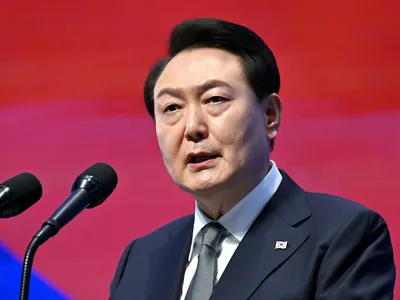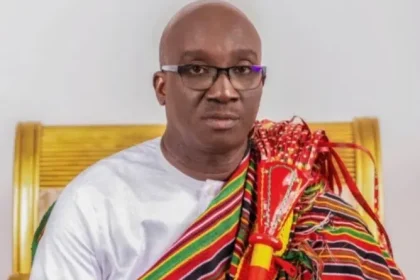By Adeyemi Adekunle
South Korea’s political crisis deepened as impeached President Yoon Suk Yeol entered his third day of defiance, refusing to surrender to authorities attempting to arrest him for his failed martial law bid.
The embattled leader, who faces charges of insurrection, imprisonment, or even the death penalty, remains holed up in the official presidential residence, vowing to “fight to the very end” to protect what he calls the nation’s sovereignty.
The December 3 martial law attempt, which Yoon declared to combat what he referred to as “anti-state elements,” lasted only a few chaotic hours.
Armed troops stormed the National Assembly in a dramatic but short-lived operation that saw lawmakers rush to vote down the declaration. Parliament swiftly impeached Yoon, stripping him of his presidential duties.
Despite the overwhelming backlash, Yoon has shown no signs of backing down. In a statement passed among protesters by his lawyer, Yoon Kab-keun, the suspended president declared, “The Republic of Korea is in danger due to internal and external forces threatening its sovereignty.”
He added that he would fight alongside his supporters, who have camped outside the presidential residence, holding placards and confronting police.
Inside the compound, Yoon’s security team has thwarted multiple police attempts to execute the arrest warrant, citing laws that protect locations containing official secrets. However, the standoff has drawn sharp criticism from opposition lawmakers, who accuse Yoon of inciting unrest and clinging to power through inflammatory rhetoric.
“Yoon Suk Yeol is delusional,” said Jo Seoung-lae, a spokesperson for the Democratic Party. “His actions are not just a legal crisis but a dangerous attempt to provoke clashes.”
The Corruption Investigation Office (CIO), which is leading the probe, has warned that anyone obstructing Yoon’s arrest could face prosecution. Meanwhile, a Seoul court has issued a search warrant for the presidential residence, though enforcement remains stalled by legal technicalities and the unwavering presence of Yoon’s security detail.
In a bid to block his arrest, Yoon’s legal team has filed for an injunction, calling the warrant “unlawful and invalid.” Behind the scenes, prosecutors and police are debating their next steps as the January 6 expiration of the warrant looms.
The political drama has evoked memories of South Korea’s authoritarian past, stirring fears of a return to the turbulent days of military rule. Yoon’s failed martial law bid, coupled with his inflammatory accusations that the opposition is allied with communist forces, has polarized the nation.
Supporters from across the country have flocked to Seoul, rallying outside the residence with chants of solidarity. Their fervor reflects the deep divide that Yoon’s presidency has left in its wake. For now, the impasse continues, a tense standstill that underscores the fragility of South Korea’s democracy amid this unprecedented crisis.




